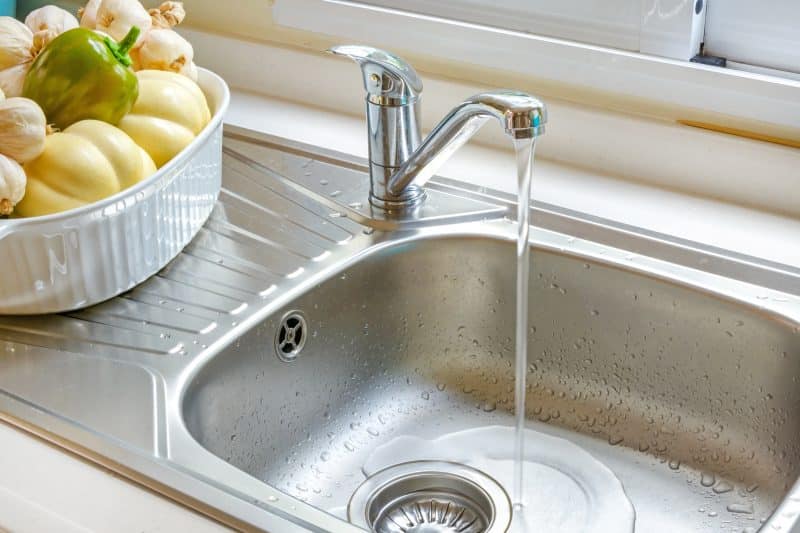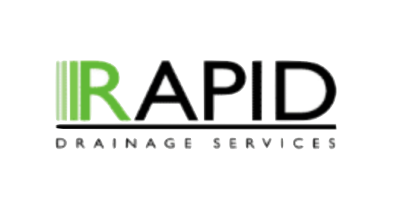How Can I Dispose of Fats, Oil and Grease?
How Can I Dispose of Fats, Oil and Grease?
It’s been a great meal, the roast is golden, the chips are crisp, and the gravy is perfection. But then you’re left with the one question no one wants to answer: what do you do with the leftover oil and grease?
For many, the answer is “just pour it down the sink.” After all, it’s a liquid, and sinks are made for liquids, right?
Unfortunately, that’s one of the most common and costly kitchen mistakes homeowners make. Pouring fats, oil, or grease down your drain might seem harmless in the moment, but over time, it can cause plumbing chaos.
Let’s take a closer look at why this simple act can have such disastrous consequences, how to properly dispose of cooking fats and oils, and what to do if your drains have already fallen victim to the dreaded fat build-up.
1. The Hidden Danger of Fats, Oil and Grease
When hot oil or melted fat is poured down the sink, it’s liquid — but that doesn’t last long. As it cools, it solidifies into a sticky, waxy substance that clings to the inside of your pipes like superglue.
Now imagine adding washing-up liquid, soap, and food particles to the mix. Over time, they combine to form a thick, sticky mass that narrows your pipes and eventually blocks them altogether.
And that’s just in your home. Multiply that by thousands of households doing the same thing across London, and you’ve got a recipe for an environmental horror story: fatbergs.
2. Fatbergs: The Sewer Monsters Beneath Our Feet
If you’ve never heard of a fatberg, picture this: a congealed mass of fat, oil, grease, and unflushables (like wipes, nappies, and cotton buds) lurking in the sewers.
They can grow to enormous sizes, one discovered in Whitechapel, London, weighed 130 tonnes and was as long as two football pitches. It took workers weeks to remove, using high-powered jets, cutting equipment, and a lot of patience.
Thames Water estimates that they clear around 75,000 blockages every year, costing millions of pounds in repairs and clean-ups, much of which is caused by domestic grease disposal.
So, when we say “don’t pour oil down the sink,” it’s not just about protecting your plumbing – it’s about protecting your city’s entire drainage network.
3. Why Pouring Oil Down the Drain Is a Risk to Your Home
Fatbergs may sound like a city-wide problem, but the truth is they often start small, in individual homes.
🚰 Pipe Blockages
When grease solidifies inside your kitchen drain, it traps food particles and debris. This slows down water flow and eventually creates full blockages.
💸 Expensive Repairs
The average plumbing call-out in London costs between £40 and £60 per hour, and that’s before parts or emergency surcharges. A bad blockage can quickly turn into hundreds of pounds in repair bills.
🌊 Flooding and Backups
Severe blockages can cause wastewater to back up into sinks or even flood through drains. The result? Contaminated water in your kitchen or bathroom — and a very long day ahead.
🔥 Pipe Damage
Even pouring hot oil can be dangerous. Plastic pipes can warp or erode when repeatedly exposed to scalding grease, reducing their lifespan and making leaks more likely.
4. Common Myths About Oil Disposal (and Why They’re Wrong)
Let’s bust a few common kitchen myths:
❌ “Hot water and soap will wash it away.”
Wrong. Hot water only keeps oil liquid temporarily. As it cools further down your pipes, it solidifies again. Soap, meanwhile, can combine with fats to form a sticky residue, making things worse, not better.
❌ “It’s fine if I only do it occasionally.”
Sadly, even small amounts build up over time. A tablespoon here and there can create a blockage months later.
❌ “It’s okay if I use a strainer.”
Strainers help with food waste but don’t stop oil or grease. Once poured, the damage has already begun.
So, if the sink isn’t the solution… what is?

5. The Right Way to Dispose of Fats, Oil and Grease
Proper disposal isn’t complicated. It just takes a few small habits to make a big difference.
🥄 Step 1: Scrape Before You Wash
Before washing up, use a paper towel or spatula to scrape off excess oil, grease, and food debris from plates, pans, and trays. Dispose of these in your food waste or general rubbish.
🫙 Step 2: Collect and Cool
For larger amounts, pour used cooking oil into an old glass jar, tin, or ceramic container. Once it cools and solidifies, place the sealed container in your general waste bin.
If you cook often, you can store waste oil over time and dispose of it in one go.
♻️ Step 3: Use Food Waste Recycling (Where Available)
Many local councils in London and Essex allow small amounts of cooled oil and fat to be disposed of in food waste bins. Check your local authority’s website for guidance.
For example, Essex County Council’s recycling guide explains where cooking oil can be taken for recycling into biofuel.
🚫 Step 4: Never Pour It Down Toilets or Outdoor Drains
Outdoor drains often connect directly to surface water systems that lead to rivers and seas, pouring oil down them can cause pollution and harm aquatic life.
6. What to Do If Your Drain Is Already Blocked
If your kitchen sink has started draining slowly, makes a gurgling sound, or emits a foul smell, it’s likely that grease build-up has already taken hold.
Here’s what to do:
🪠 Try a Plunger First
A plunger can sometimes dislodge small clogs near the surface. Use steady, firm plunges to create pressure that pushes the blockage loose.
🌡️ Use Boiling Water Wisely
Pouring boiling water can melt soft grease temporarily, helping flush it through. But this only works for minor build-ups — and shouldn’t be your only method.
🧰 Call the Professionals
If the problem persists, it’s time to bring in the experts. Professional drain engineers, like those at Rapid Drainage, use tools such as:
CCTV cameras to locate the blockage
High-pressure water jetting to break down and remove fat build-up
Non-invasive cleaning techniques to restore full flow without damaging your pipes
We handle both domestic and commercial drain unblocking in London, 24 hours a day, 7 days a week.
7. How to Prevent Future Fat Build-Up
Prevention really is the key. Once your drains are clear, a few small changes will keep them that way:
Wipe pans before washing: Use kitchen roll to absorb oil first.
Install sink strainers: Catch leftover food particles before they cause clogs.
Avoid harsh chemicals: They can corrode pipes and damage the environment.
Book routine maintenance: A quick annual inspection or jet clean can prevent recurring issues.
Rapid Drainage offers scheduled maintenance plans to help homeowners and businesses avoid emergency callouts and costly repairs.
8. Small Habits, Big Impact
It might seem like a tiny thing, a splash of oil here, a bit of grease there – but what you pour down your sink today can cause major headaches tomorrow.
Properly disposing of fats, oils, and grease protects your home, saves money, and prevents environmental damage. And if your drains are already misbehaving, help is just a phone call away.
📞 Call Rapid Drainage today
🌐 Visit https://rdrainage.co.uk/contact-us/ to book professional drain unblocking in London or schedule regular maintenance.
Keep your drains clean, your conscience clear, and your kitchen sink flowing freely — one responsible oil disposal at a time.


